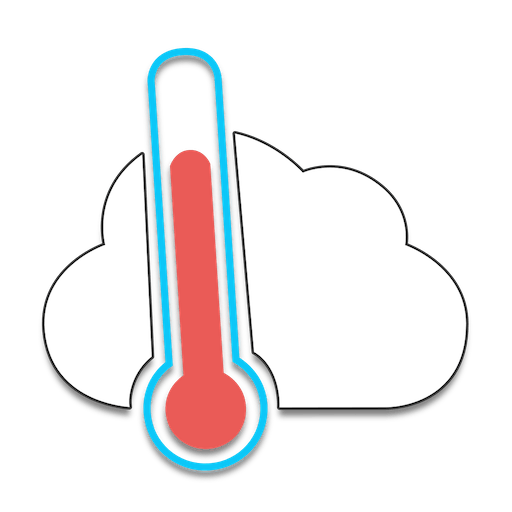It’s almost a certainty that Winnipeg will record the warmest day so far this spring at it’s official reporting station at the airport, but it will without question be perhaps one of the most unpleasant feeling days of the past couple weeks as a low pressure system moves through.
Today
3°C / -9°C
Cloudy & windy. Chance of flurries midday onwards.
A low pressure system will be tracking through Southern Manitoba today, bringing with it a mass of very warm air. Temperatures at the surface will climb to around +3°C today despite our 850mb temperatures climbing nearly 20°C from yesterday’s values. Thanks to the significant push of warm air aloft moving into the Red River Valley, our winds will be blowing quite strong today out of the south. The winds should sit around 40km/h with gusts to 60km/h through much of the morning, although it’s possible that winds will strengthen beyond that with gusts as high as 70–75km/h.
In addition to the above-zero temperatures, our dewpoint is expected to climb above zero as well. The above-zero temperatures combined with above-zero dewpoints will prove to be one of the more effective melting days we’ve seen so far this year despite the absence of sun with substantial warming of the entire snowpack possible. We may see some flurries as the cold front pushes through in the afternoon, but current indications are that the air coming in is a little to dry to produce much precipitation. Before the cold front comes through, the thermodynamic profile looks relatively favourable for drizzle, but I think that the strong winds will prevent its development. All in all, despite the warmer temperatures, today will end up a cloudy, damp, windy chilly-feeling day.
Once the cold front pushes through mid-afternoon, we’ll see winds lighten and slowly shift to westerlies while gradual clearing occurs. Temperatures will drop to around –9°C tonight under clear skies.
Thursday & Friday
-2°C / -14°C
Mainly sunny.
0°C / -8°C
Mainly sunny. Increasing cloud overnight with chance of flurries.
We’ll return to a benign pattern for the rest of the week as another Arctic ridge builds into the Prairies. We’ll see plenty of sunny skies and highs near or just under 0°C while overnight lows sit around –14°C on Thursday night and warm to just –8°C on Friday night as clouds begin to move in ahead of the next low pressure system. Winds will remain light through Thursday and Friday.
The Weekend
Models are having difficulty resolving exactly what is going to happen with the next system headed our way for late overnight Friday into Saturday. American models are keeping it well to our south, the Canadian models are clipping it through SW Manitoba and the far SW portions of the Red River Valley, while the European models are bringing it through the Trans-Canada corridor, including Winnipeg. While the European models tend to have higher skill than the North American models at long-range (primarily thanks to their relentless efforts to initialize the models as well as they possibly can), the solution doesn’t necessarily make a whole lot of sense to me.
We’ll be watching this system develop over the next few days, and while it seems likely that some snow will fall this weekend over SW Manitoba, it’s still too early to call for Winnipeg or the RRV; we may see nothing or another 5–10cm of the white stuff. At this point, regardless of where it goes, it doesn’t look like a major system that will drop too much water (ensemble solutions are pointing towards 5–10mm of liquid equivalent with this system).
Long-Range
This cool weather of late has many people asking when spring will arrive. Our snowpack is abnormally deep for this time of year, March started off warm but just got colder and colder as time went on, and we have yet to even start the widespread snowpack melt. All this is certainly compounded by memories of last March’s weather, where we had the warmest March on record at 2.2°C, 0.6°C above the previous record.[1] Fortunately, there is some hope on the horizon.
The Arctic Oscillation (AO), a large-scale weather pattern that can impact the distribution of cold air through the Northern Hemisphere, has been locked below zero for quite some time now. When the AO value is negative, it usually results in a stationary pool of cold air over central continental North America, as we’ve seen over the past few weeks. This has brought below-normal temperatures to many locations across the Prairies and northern United States. The good news is that, as seen above, the AO values are expected to sharply shift into the positive over the next two weeks, which should allow the jet stream to start pushing northwards and bring warmer weather to our region. So while the cooler weather will likely be here for the next 7–10 days at least, a significant change in the weather pattern looks like it’s on it’s way in the near future.
- Check out the mentioned link for a list of the 9 significant records we broke in March 2012. ↩


